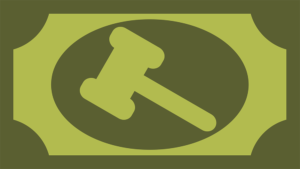HUMANISM 101 | End Cash Bail

Why are 76 percent of people held in jails not convicted of any crime? Because of the cash bail system that is only found in the United States and the Philippines. We’ve become so used to an unfair and exploitative system of cash bail that we can’t see the enormous inequities in it. Hundreds of thousands of poor people are imprisoned before they’re convicted of a crime because they can’t pay their bail.
The cash bail system destabilizes lives. As criminal justice reformer Kyla Hartsfield pointed out to local North Carolina news station WRAL last year, the consequences of pre-trial incarceration can be disastrous regardless of the accused’s innocence or guilt. “Lose your job, possibly lose your kids, lose your home,” she said, stressing people could lose everything they have in a month.
Even though the Eighth Amendment to the US Constitution explicitly states that “excessive bail shall not be required,” the national median felony bail is $10,000, an amount out of reach for most when you consider that almost half of the American population doesn’t have $400 on hand. The average nonrefundable fee is ten percent of the bail amount, which has to be repaid even if the case is dismissed, plea bargained, or if the person is found innocent. A $100,000 bail, $10,000 bond fee, and $8,000 in attorney fees is not uncommon. Paying off $18,000 can take years for most people.
The cash bail system disproportionately effects minorities. A Pretrial Justice Institute study found that simply being black increases your odds of being held on bail by 25 percent, and another study found that bails are set 35 percent higher for black men and 19 percent higher for Latino men than for white men.
The bail system was originally designed to make sure people reported for trial, but in Washington, DC, where cash bail was eliminated in 1992, the data shows that removing bail doesn’t decrease the reporting for trial.
People are also more likely to be convicted of the crime they were charged with if imprisoned pretrial. A New York City Criminal Justice Agency study has shown that the non-felony conviction rate jumps from 50 percent to 92 percent for those jailed pretrial. For felony cases, the rate jumps from 59 percent to 85 percent. You can predict whether someone is eventually convicted, as people become desperate to leave jail and agree to plea deals. Prosecutors know the desperation people feel to get out of jail and take advantage of it.
The predatory cash bail system is fed by the huge profits for bail bondsman and the insurance companies who underwrite them. It’s the highest profitability business for insurance companies. According to a recent report by Color of Change and the ACLU Campaign for Smart Justice, fewer than ten companies are responsible for a significant majority of the $14 billion in bonds posted by for-profit bail each year. The industry collects around $2 billion a year in profits. In North Carolina alone, where 86 percent of incarcerated people are legally innocent, the bail bondsman lobby contributes $300,000 to political campaigns, which is why it’s so hard to end the bail bond system. Follow the money.
There are risk assessment systems available to determine dangerous and flight-risk defendants for potential incarceration or to recommend bail. Even better, a “needs assessment” accounts for the needs of people to insure they show up for trial. It requires both supervised release and the provision of services to help the individual make it to her or his court appearance (such as mental health and/or drug counseling, phone reminders of the court date, housing, transportation to hearings, and childcare while in court). New Jersey, for example, was able to enact a bipartisan bail reform law that took effect on January 1, 2017, and since then the daily population in the state’s jails has dropped 17.2 percent and cash bail has been imposed only thirty-three times out of 33,400 defendants.
Ending the abusive cash bail system is a humanist ethical cause. Our values of fairness, justice, freedom, and non-discrimination are challenged in this totally irrational, racist, and demeaning system that burdens all of us in some way. Lack of money should not determine who is in jail and whose lives are turned upside down.
